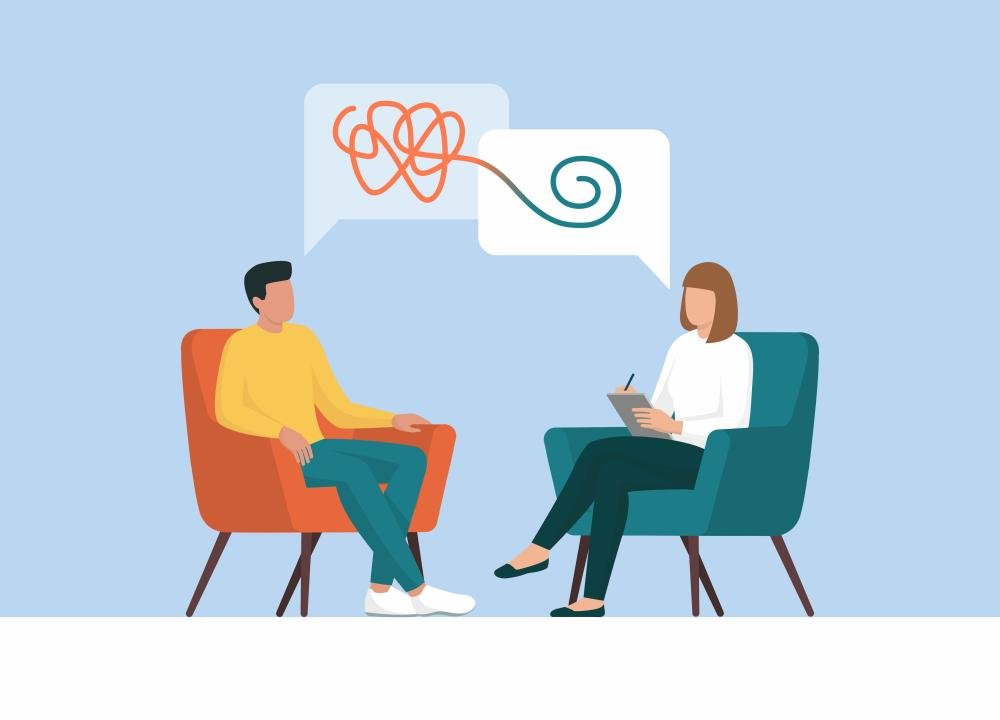Depression is one of the most common mental health conditions worldwide, affecting millions of people every year. It can manifest in persistent sadness, loss of interest in activities, fatigue, changes in appetite, difficulty concentrating, and feelings of hopelessness.
While medication is often an option for some individuals, therapy plays a central role in helping people manage and overcome depression. Among the different forms of therapy available, Cognitive Behavioral Therapy (CBT) is one of the most researched and effective treatments.
What is CBT?
Cognitive Behavioral Therapy is a structured, short-term, and goal-oriented form of psychotherapy that focuses on the connection between our thoughts, emotions, and behaviors.
The basic principle is simple yet powerful: negative or distorted thoughts can fuel negative emotions and lead to harmful behaviors. By identifying and challenging these thoughts, people can change the way they feel and act, breaking the cycle of depression.
For example, someone experiencing depression might think, “I’m worthless and nothing I do matters.” CBT helps the individual recognize this as a negative thought pattern rather than a fact. Through therapy, they learn to challenge it and replace it with a more balanced perspective, such as, “I’m struggling right now, but I have strengths and can take small steps to improve my situation.”
How CBT Helps with Depression
Let’s find out how CBT helps in coping with depression
- Identifying Negative Thought Patterns
One of the first steps in CBT is becoming aware of automatic negative thoughts. These thoughts often occur so quickly that people don’t even notice them, yet they strongly influence mood. A CBT therapist helps individuals slow down and identify these patterns.
- Challenging Cognitive Distortions
Depression often involves cognitive distortions such as “all-or-nothing thinking,” “catastrophizing,” or “overgeneralization.” For example, failing one task might lead someone to think, “I fail at everything.” CBT teaches people to evaluate these thoughts critically and replace them with more realistic ones.
- Behavioral Activation
Depression can make people withdraw from activities they once enjoyed. CBT encourages gradual re-engagement with positive and meaningful activities, even if motivation feels low. This “behavioral activation” helps break the cycle of inactivity and reinforces feelings of accomplishment and pleasure.
- Problem-Solving Skills
People with depression may feel overwhelmed by life’s challenges. North Shore CBT Centre provides practical tools for breaking down problems into manageable steps, helping individuals feel more capable and in control.
- Relapse Prevention
Another strength of CBT is its focus on long-term skills. Individuals learn strategies they can use even after therapy ends, reducing the risk of relapse. These skills empower people to cope with future challenges without falling back into old patterns.
The Role of a Psychologist in CBT for Depression
While self-help resources based on CBT principles can be beneficial, working with a trained psychologist often leads to the best outcomes. A psychologist provides guidance, accountability, and personalized strategies tailored to the individual’s unique situation.
Visiting a psychologist in North Vancouver for depression can feel intimidating at first, but the process is collaborative. Instead of simply giving advice, the psychologist works together with the individual to uncover thought patterns, set goals, and track progress. This partnership makes CBT more effective and encourages lasting change.
Who Can Benefit from CBT?
CBT is suitable for many people experiencing depression, whether mild or severe. It can also be combined with medication for those who need additional support. Importantly, CBT is evidence-based—meaning multiple studies have shown its effectiveness across different age groups and backgrounds.
It is also helpful for people who experience depression alongside other conditions such as anxiety, stress, or trauma.
Practical CBT Techniques You Can Try
Even outside of therapy sessions, individuals can apply some basic CBT techniques:
- Journaling thoughts: Writing down negative thoughts and examining the evidence for and against them.
- Activity scheduling: Planning enjoyable or meaningful activities, even if motivation feels low.
- Thought challenging: Asking, “Is this thought 100% true? Is there another perspective I’m missing?”
- Gratitude practice: Noticing small positives each day to shift focus from negativity.
While these techniques can help, they are most effective when guided by a trained professional who understands how to apply them systematically.
Conclusion
Depression can feel overwhelming, but it does not have to define a person’s life. Cognitive Behavioral Therapy offers a structured, practical, and empowering approach to managing depression by helping individuals change the way they think and act.
Through identifying negative thought patterns, re-engaging in meaningful activities, and learning long-term coping skills, CBT gives people the tools they need to regain control over their mental health.
For anyone struggling with depression, reaching out to a psychologist trained in CBT can be a life-changing step. Professional guidance ensures that therapy is tailored to individual needs and provides the support necessary for lasting recovery.
